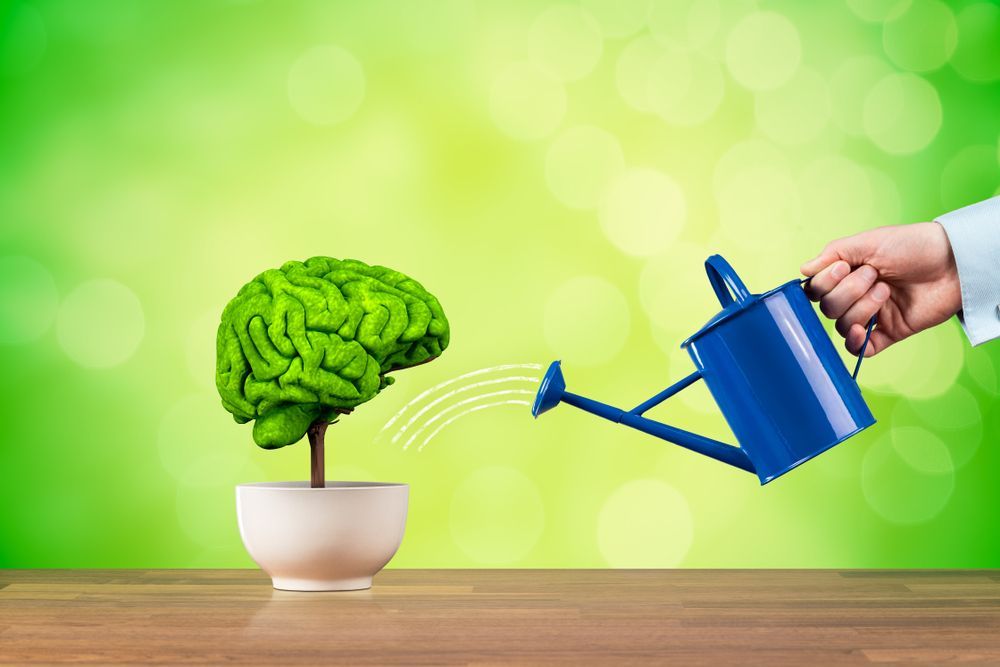Questions? click here to call
Get in touch
412-567-4220
admin@revivemobileivs.com
How Hydration Enhances Cognitive Function and Mental Clarity
How Hydration Enhances Cognitive Function and Mental Clarity

Staying hydrated is essential for maintaining various bodily functions, but its impact on cognitive function and mental clarity is particularly noteworthy. This article explores the importance of hydration, how it affects the brain, and practical strategies for staying hydrated.
Understanding the Importance of Hydration
The Role of Water in the Human Body
Water is the most vital substance for human life, constituting about 60% of our body weight. Every cell, tissue, and organ needs water to function properly. It aids in digestion, absorption, circulation, and temperature regulation. When the body is well-hydrated, these processes operate more efficiently.
Water also plays a critical role in transporting oxygen and nutrients to cells, which is fundamental for maintaining energy levels and overall health. Even minor dehydration can impair these processes, leading to a cascade of physical problems. For instance, a mere 1-2% drop in body water can trigger thirst and reduce physical performance, making it essential to stay ahead of hydration needs, especially during exercise or in hot climates.
Hydration and Its Impact on Overall Health
The relationship between hydration and health extends beyond just physical well-being. Proper hydration helps maintain kidney function, aids in the detoxification of the body, and supports the immune system. When the body is hydrated, individuals are less prone to illnesses and infections. Additionally, adequate water intake can help prevent kidney stones and urinary tract infections, which are often exacerbated by dehydration.
Moreover, mental health can also be influenced by hydration levels. Studies have shown that dehydration can lead to feelings of fatigue and depression, emphasizing the importance of constant hydration not just for the body but for the mind as well. Cognitive functions, such as concentration and alertness, can also decline with insufficient water intake. This connection between hydration and cognitive performance highlights the need for individuals, especially students and professionals, to prioritize their fluid intake throughout the day to maintain optimal mental clarity and productivity.
The Connection Between Hydration and Cognitive Function
How Dehydration Affects the Brain
Dehydration can have a direct and immediate effect on cognitive functions. When the body loses more water than it takes in, even mild dehydration can impair concentration, alertness, and short-term memory. The brain is particularly sensitive to fluid fluctuations, as it requires a constant supply of water to maintain its functions.
Recent research has shown that dehydration can affect cognitive tasks such as attention, reasoning, and even mood. This exposes a direct link between staying hydrated and ensuring optimal brain performance. Studies suggest that just a 1-2% decrease in body water can lead to noticeable cognitive deficits, highlighting the importance of regular fluid intake throughout the day. Furthermore, dehydration can lead to increased feelings of fatigue and irritability, which can further hinder cognitive performance and overall well-being.
Hydration and Memory Performance
Memory is another cognitive function that can be significantly impacted by hydration levels. Studies have indicated that individuals with reduced hydration levels can experience deficits in working memory and long-term recall. The hippocampus, which is essential for memory processing, relies heavily on adequate hydration to operate effectively.
By ensuring proper hydration, individuals can enhance their memory performance and recall abilities, promoting better academic and professional outcomes. Additionally, hydration plays a crucial role in neuroplasticity, the brain's ability to adapt and reorganize itself. This is particularly important for learning new information and skills. Research has demonstrated that staying well-hydrated can improve learning efficiency, allowing for quicker absorption of new concepts and better retention of information over time. As such, maintaining optimal hydration levels is not just about physical health; it is also a fundamental aspect of cognitive enhancement and lifelong learning.
Hydration and Mental Clarity
The Influence of Hydration on Focus and Concentration
Maintaining focus and concentration is critical for productivity. Dehydration can lead to brain fog, diminishing the ability to concentrate on tasks. When the brain is deprived of necessary fluids, neurotransmitter function can also be affected, which is integral for communication within the brain.
Consequently, staying hydrated can help maintain sharp focus, enhancing both work and academic performance. Individuals who prioritize hydration are likely to experience fewer distractions and a more profound engagement with tasks at hand.
Hydration and Its Role in Stress Management
Stress management is another area where hydration plays a crucial role. Lack of water can lead to an increase in the hormone cortisol, which is associated with stress. When well-hydrated, the body can more effectively manage stress responses, leading to improved mental clarity and emotional stability.
Moreover, adequate hydration may facilitate relaxation techniques, such as mindfulness and meditation, as the brain functions better when it’s well-hydrated, enhancing the overall stress management process.
Practical Tips for Staying Hydrated
Identifying Signs of Dehydration
Recognizing the signs of dehydration is essential in maintaining proper hydration levels. Common indicators include:
- Thirst
- Dark yellow urine
- Fatigue or lethargy
- Dry skin or lips
By being attuned to these signs, individuals can take action to replenish their fluid levels before experiencing the adverse cognitive effects of dehydration.
Hydration Strategies for Optimal Brain Function
Here are some effective strategies to ensure that hydration supports your cognitive function:
- Drink water regularly throughout the day, even if you're not thirsty.
- Consume fruits and vegetables with high water content, such as cucumbers, oranges, and watermelon.
- Keep a water bottle nearby to encourage frequent sipping.
- Set reminders to hydrate during busy times.
Adopting these hydration strategies can help significantly enhance cognitive functions and overall mental clarity.
The Science Behind Hydration and Cognitive Function
Exploring the Neurological Benefits of Hydration
Scientific studies indicate that proper hydration can positively influence neurological health. Adequate hydration helps maintain neural pathways and supports the production of neurotransmitters, which are vital for communication within the brain. These pathways are necessary for cognitive functions such as judgment, problem-solving, and creativity.
Furthermore, hydration can enhance mood regulation, reducing incidences of anxiety and depression, thereby boosting overall cognitive performance.
The Physiological Processes of Hydration and Dehydration
The physiological processes of hydration involve complex mechanisms that ensure the body maintains fluid balance. When adequately hydrated, mechanisms such as osmoregulation work seamlessly to balance the body's fluid levels. On the contrary, dehydration initiates bodily stress responses, affecting multiple organ systems, particularly the brain.
In conclusion, understanding the vital role hydration plays in cognitive function and mental clarity is essential for maintaining optimal health. By prioritizing hydration, individuals can enhance their mental performance and improve their overall quality of life.
If you think you may have a medical emergency, immediately call your doctor or dial 911. This website does not provide medical advice. It is intended for informational purposes only. It is not a substitute for professional medical advice, diagnosis or treatment. Never ignore professional medical advice in seeking treatment because of something you read on the internet. Services provided have not been evaluated by the Food and Drug Administration. Always consult your physician before beginning any treatment or therapy program. Any designations or references to therapies are for marketing purposes only and do not represent actual products.
PAYMENTS METHOD
We accept cash, major credit cards, Zelle, and Venmo, and our services are HSA & FSA approved!
LEGAL
RECENT POST


© 2024 Revive Mobile | All Rights Reserved | Powered By OMG Marketing









